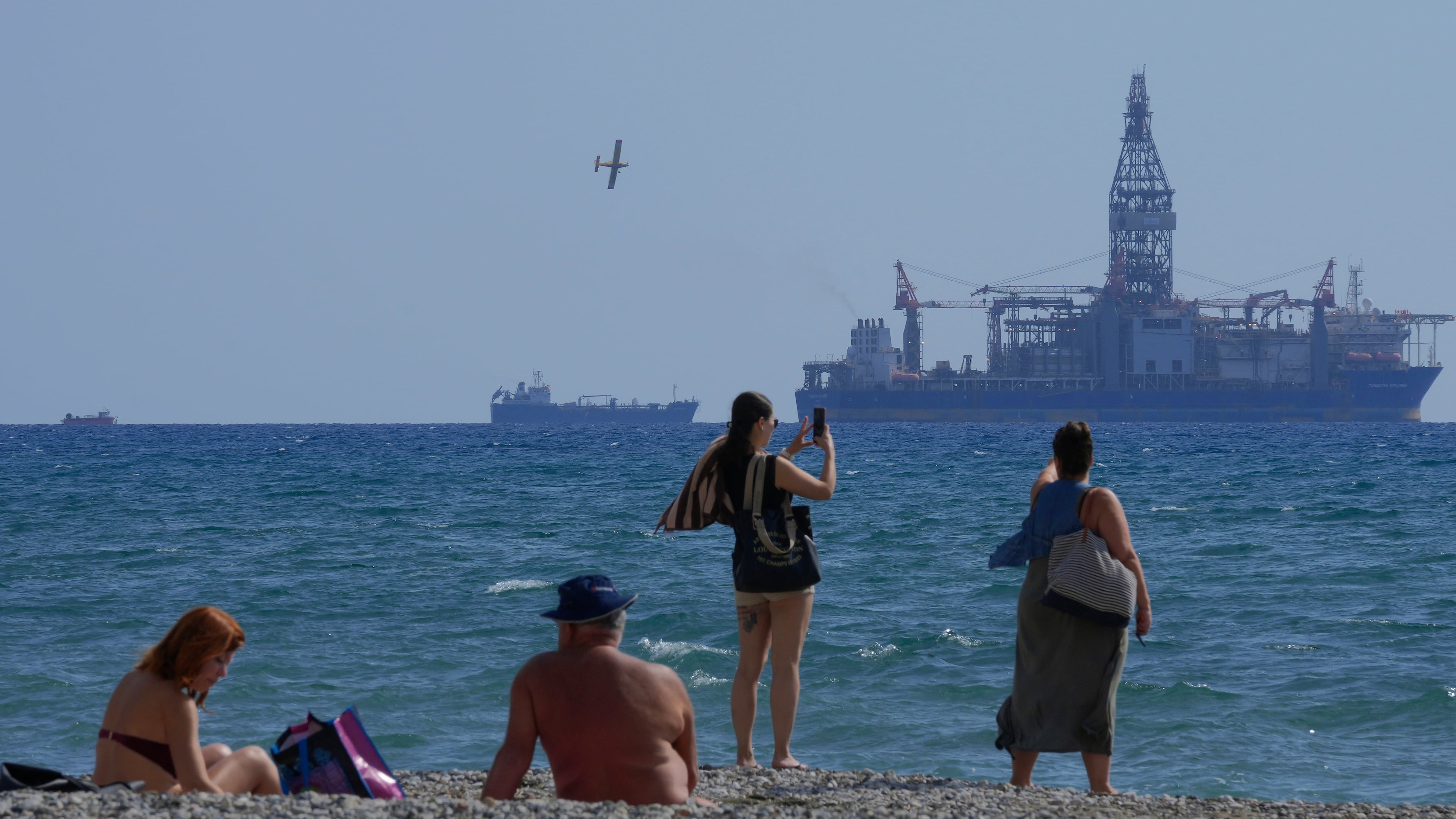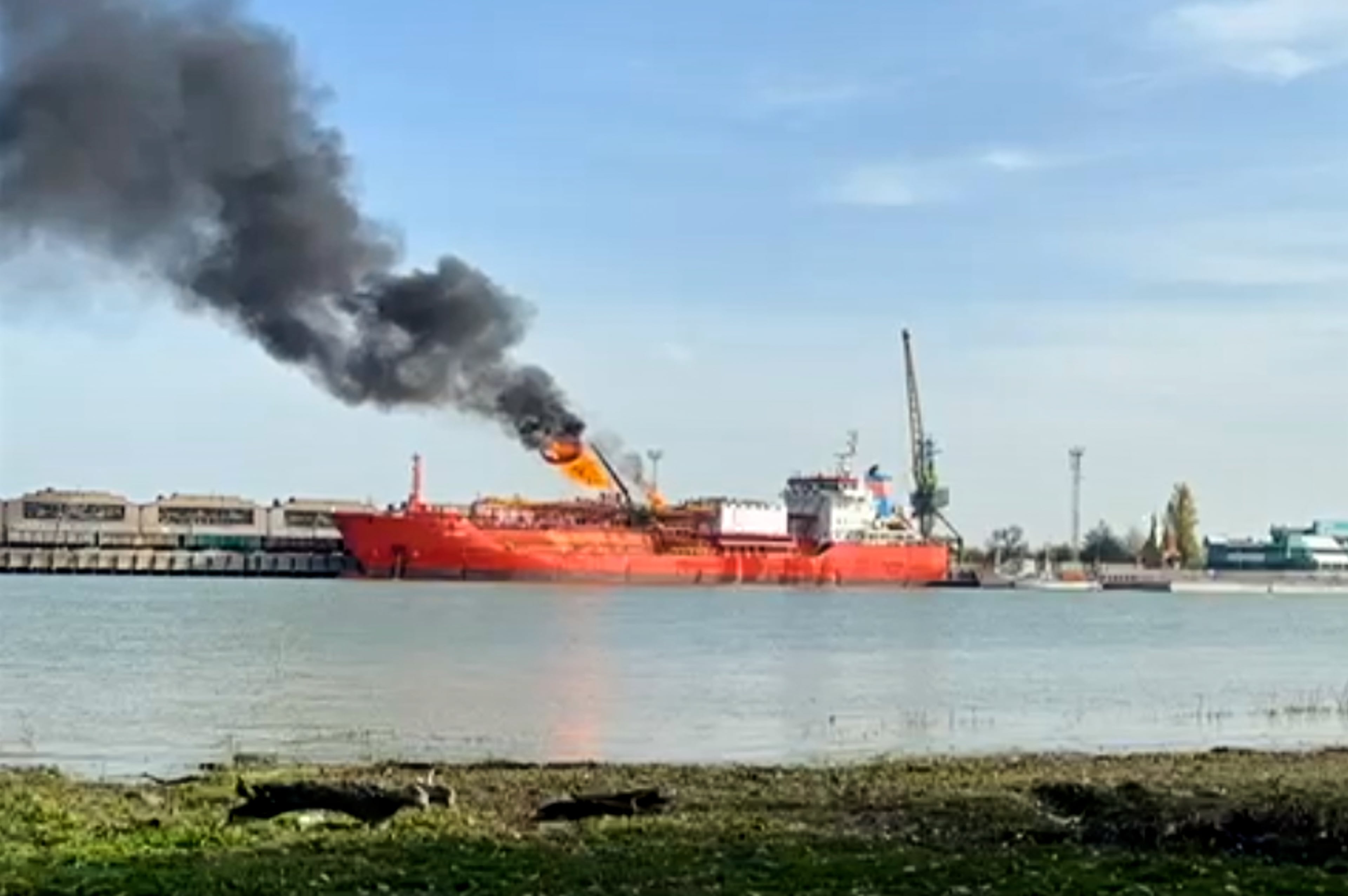Europe could get Cypriot natural gas by 2027, president says

NICOSIA, Cyprus (AP) — Some of the estimated 20 trillion cubic feet of natural gas discovered in waters off Cyprus could reach European markets as soon as 2027, the Cypriot president said Wednesday, as Europe looks for more ways to wean itself off Russian energy.
President Nikos Christodoulides said that the first quantity of natural gas that could be exported abroad will come from the so-called Cronos deposit, which is operated by a consortium made up of Italian company Eni and French firm TotalEnergies.
Christodoulides told an energy conference that the consortium would make its final decision to move ahead with the project next year, with Cronos gas potentially reaching a processing plant in the Egyptian port city of Damietta for liquefaction and transportation to European markets by ship in 2027.
“Cyprus is part of the energy solutions for energy security in the eastern Mediterranean and like I said, it’s an important objective to align your interests with those of powerful states and to act as an alternative energy corridor for Europe,” Christodoulides said.
Speaking at the same conference, Cypriot Energy Minister George Pananastasiou said that natural gas from the Cronos deposit could reach markets the quickest, because it can be connected to infrastructure already in place conveying gas from Egypt’s huge Zor deposit around 80 kilometers (50 miles) away.
Papanastasiou said that a late 2027 target date for Cronos gas to reach market is “optimistic but doable.”
According to the Cypriot energy minister, plans to export natural gas from another of Cyprus’ deposits known as Aphrodite foresee the positioning of a floating processing plant atop the actual reservoir to modify the hydrocarbon into what he called “dry gas” that can be routed directly to consumers inside Egypt.
The processed gas will reach a facility near Egypt’s Port Said and will either be utilized for domestic Egyptian consumption or liquefied for export to Europe, depending on what will be decided in further consultations between Cyprus and the deposit’s operator, a partnership between Chevron, Shell and Israeli company NewMed Energy.
Christodoulides said that he would travel to Lebanon next week to exclusively discuss Cyprus’ energy plans. Cyprus shares maritime borders with Lebanon, but the Lebanese government hasn’t fully ratified an agreement delineating the exclusive economic zones of the two countries. That has prevented Cyprus from opening up areas abutting Lebanese waters for hydrocarbons exploration.
The Cypriot president said that there’s “interest from energy giants” to license more areas — or blocks — from within Cypriot waters. ExxonMobil and partners QatarEnergy also hold hydrocarbon exploration licenses for two blocks off Cyprus’ southern coast.
In one block, the partnership has made two significant natural gas deposit discoveries known as Glaucus and Pegasus. Glaucus is estimated to hold approximately 4.5 trillion cubic feet of gas, while Pegasus’ size is still being determined.
